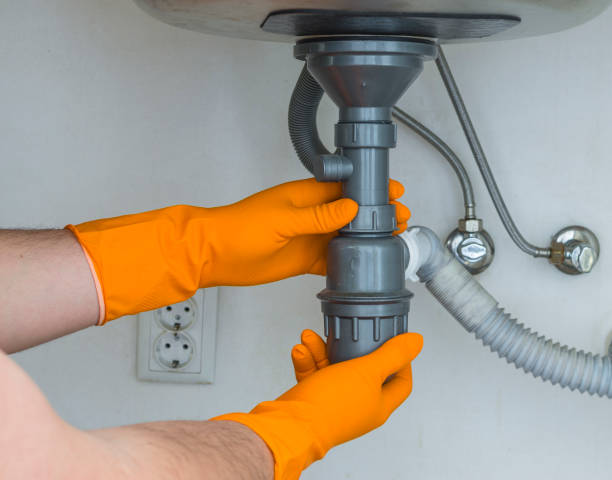Blocked toilets can have serious environmental implications that can negatively impact human health and the natural ecosystem. When toilets are blocked, untreated waste can overflow into surrounding areas, polluting water sources, contaminating soil and air, and potentially spreading waterborne diseases. Released untreated sewage can harm aquatic life and affect the balance of the ecosystem.
Additionally, blocked toilets in Geelong can increase greenhouse gas emissions, as untreated human waste can release methane and other harmful gases into the atmosphere, exacerbating climate change. Using harsh chemicals and cleaners to unclog toilets can also contribute to environmental degradation by contaminating water sources and harming wildlife. Therefore, it is essential to promote proper toilet maintenance and waste management practices to mitigate the environmental impact of blocked toilets and ensure the safety and health of both individuals and the environment.
Today’s blog post will take you through the environmental impact of blocked toilets, its causes, and the right solutions to fix the same. So, let’s begin!
1. Wastewater Treatment
One of the most significant environmental impacts of blocked toilets is on wastewater treatment facilities. When toilets are blocked, wastewater can overflow and end up in storm drains, rivers, and other bodies of water. It can result in pollution as the wastewater can contain harmful chemicals, bacteria, and other contaminants. When this wastewater enters the environment, it can harm aquatic life and damage ecosystems.
Wastewater treatment facilities are designed to handle a certain amount of wastewater, and when the system is overloaded, it can result in untreated wastewater being discharged into the environment. It can happen when there are too many blocked toilets in an area or when there is a major blockage in a sewer line. When untreated wastewater is discharged into the environment, it can seriously impact water quality and human health.
2. Greenhouse Gas Emissions
Blocked toilets can also contribute to greenhouse gas emissions. When wastewater is not properly treated, it can release methane and other greenhouse gases into the atmosphere. Methane is a potent greenhouse gas, up to 25 times more effective at trapping atmospheric heat than carbon dioxide. It can contribute to climate change and have long-term environmental impacts.
Methane is produced during the anaerobic decomposition of organic matter in wastewater, and when wastewater is not properly treated, this methane can be released into the atmosphere. It can happen when there are blockages in the wastewater treatment system or insufficient capacity to treat it.
3. Energy Consumption
Blocked toilets in Geelong can also have an impact on energy consumption. When wastewater treatment facilities are overloaded, they may need more energy to process the additional wastewater. It can result in increased energy consumption and higher greenhouse gas emissions.
In addition, when toilets are blocked, they may require more water to flush. It can result in higher water consumption, which can harm the environment. Water is a finite resource, and water scarcity is a major concern in many areas. Using more water than necessary can contribute to water scarcity and have long-term environmental impacts.
Causes of Blocked Toilets
There are several causes of blocked toilets, including flushing inappropriate items down the toilet, improper toilet use, and structural issues with the plumbing system.
- Flushing inappropriate items down the toilet is a common cause of blockages. Items such as baby wipes, feminine hygiene products, and paper towels do not break down easily in water and can become stuck in pipes, leading to blockages.
- Improper toilet use is another cause of blockages. It can include utilising excessive toilet paper, flushing the wrong items, or flushing frequently.
- Structural issues with the plumbing system can also lead to blockages. It can include tree roots growing into pipes, deteriorated old pipes, or improper plumbing system installation.
Solutions
There are several solutions to mitigate the environmental impact of blocked toilets:
- The first step is prevention. To only prevent toilets from becoming blocked, it is important to flush toilet paper and human waste. Other items, such as baby wipes, feminine hygiene products, and paper towels, should be disposed of in the trash. These items can easily become stuck in pipes and cause blockages.
- Regular maintenance is also important. Toilets should be checked regularly to ensure that they are functioning properly. If there are any signs of a blockage, such as slow drainage or gurgling noises, action should be taken immediately to prevent further damage.
- Another solution is to invest in low-flow toilets. Low-flow toilets use less water per flush, which can help to conserve water and reduce the environmental impact of toilet use. In addition, low-flow toilets can help to prevent blockages by reducing the amount of water used to flush.
- Wastewater treatment facilities can also take steps to mitigate the impact of blocked toilets. It can include increasing capacity, improving treatment processes, and investing in new technology. By increasing capacity, wastewater treatment facilities can ensure that they can handle increased wastewater flow without discharging untreated wastewater into the environment.
- Improving treatment processes can also help reduce blocked toilets’ environmental impact. By investing in new technology, wastewater treatment facilities can improve their processes’ efficiency and reduce the energy required to treat wastewater.
Connect with Your Local Plumbing for The Best Toilet Cleaning Solutions
The environmental impact of blocked toilets is significant and cannot be ignored. From the release of harmful gases to the contamination of water sources, the consequences of improper toilet use can have far-reaching effects on our environment.
Individuals must take responsibility for their actions and properly dispose of waste in a way that does not harm the environment. Simple steps like reducing the amount of toilet paper used, avoiding flushing non-biodegradable materials, and regular maintenance of plumbing systems can go a long way in preventing blockages and reducing the environmental impact of toilets.
Additionally, hiring experts at Your Local Plumbing is the best way for proper toilet cleaning and the importance of responsible waste disposal so we protect our environment and ensure a sustainable future for generations to come.
